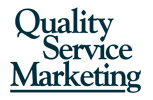I’m saddened and shocked, but not surprised, about the recent Wells Fargo sales scandal that lead to bank employees opening bogus customer accounts in response to intense pressure to meet unrealistic and aggressive sales goals.
I was once a sales manager for a local bank. It was some 30 years ago when the banking industry was trying to build sales into its service culture. At the time most of our customer service reps (CSRs) were not comfortable with cross-selling. The attitude was, “If I was interested in sales, I would have gone into retail. I got into banking because I didn’t want to sell!”
Integrating sales in a service environment
Aware of this mindset, my bank was careful and deliberate about changing the culture. Our approach was sales was part of service and that “suggestive” and “consultative” selling provided a better customer experience than just being “order takers.” It wasn’t the customer’s job to know about all the products and services our bank offered; that was the CSR’s, teller’s and branch manager’s job. It was branch team members’ responsibility to educate customers about additional products/services that might better meet their needs for savings, credit, and convenience. We used extensive training and a formal incentive system to support branch sales efforts and reinforce this new service & sales culture.
What I remember most about that time was the role of respect in the sales process — respect for both our customers and employees. It was part of the CSR’s job to suggest additional services, and if the customer declined, that was OK. This was based on my issue with fast food’s “Would you like cheese with that?” approach. As a marketer, I understood that the counter person at MacDonald’s was trained to cross-sell cheese with its hamburgers. But as a consumer, I sometimes became annoyed because if I had wanted cheese on my hamburger, I would have asked for it! Understanding and respecting the customer’s needs took precedence over “sales for the sake of sales.” That was the service & sales culture my bank’s leadership supported.
Wells Fargo brand damage
My former boss in branch administration, who endured several bank mergers, used to joke that the operational metrics in the large banks were so extensive, they probably tracked how much toilet paper was used in the employee restrooms. That’s why I find it hard to believe that Wells Fargo management was unaware of what was happening. The banking giant’s meet-your-sales-goals-numbers-at-all-costs-if-you-want-to-continue-working-here culture created a lose-lose-lose situation for its customers, employees, and brand — the result of greed, not respect.


2 replies on “Hey, Wells Fargo: You Should’ve Followed Aretha Franklin, Not Gordon Gekko”
Thanks, Harry. I know you and your colleagues at Quakertown National Bank work in a community-bank culture that respects customers AND employees.
Respect for their employees might have saved 5,300 people their jobs. Respect for their customers might have kept those same employees from doing what they ultimately had to know was wrong. We all need to keep this in mind in our quest for business. Respect!